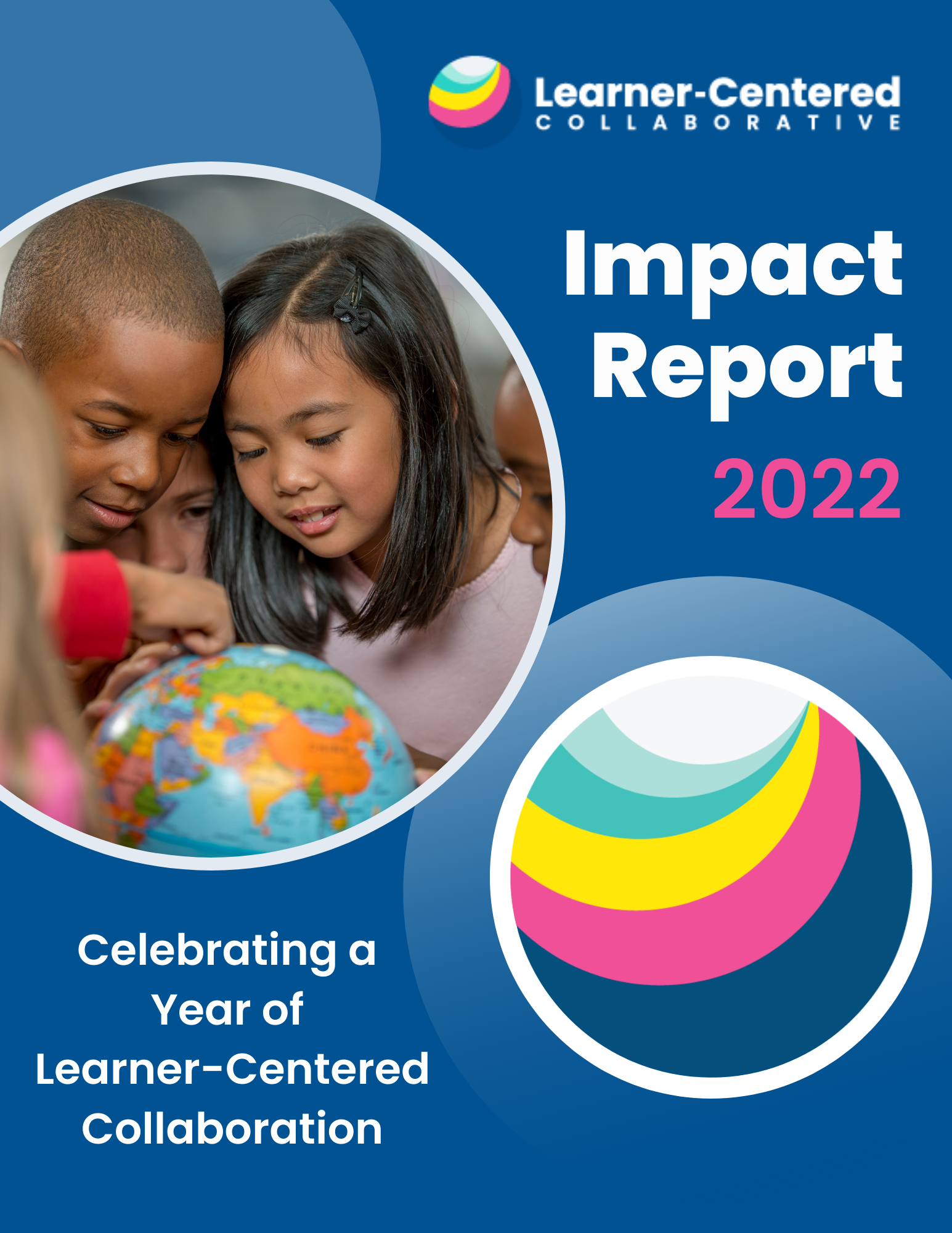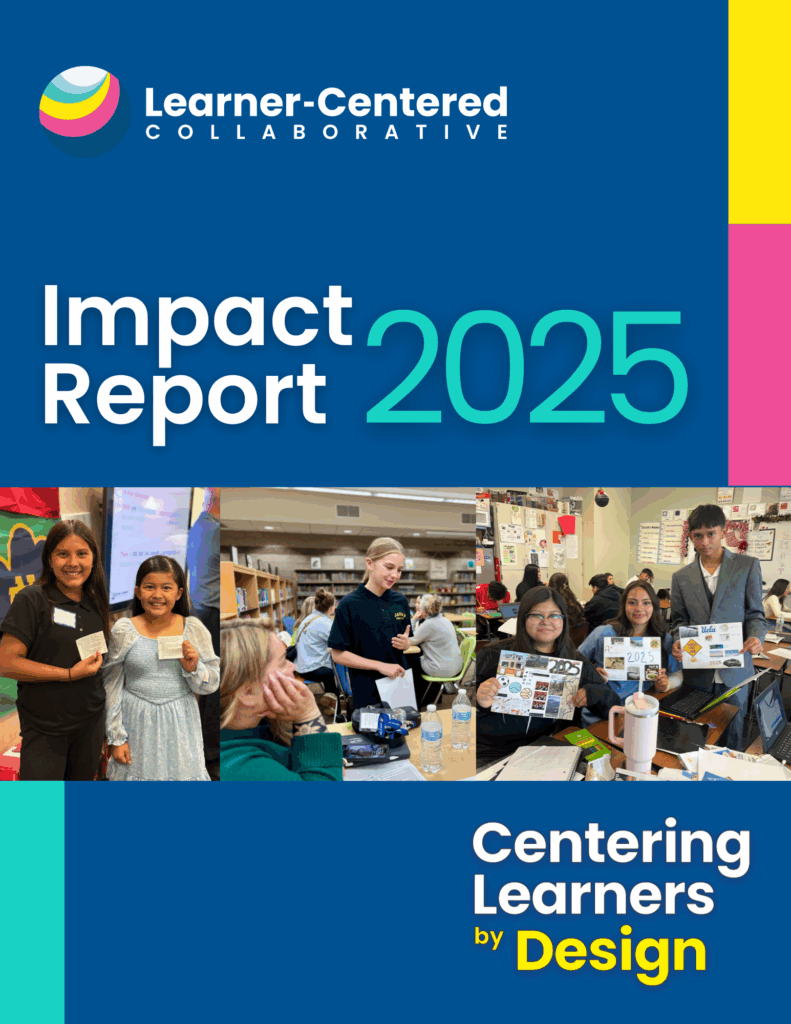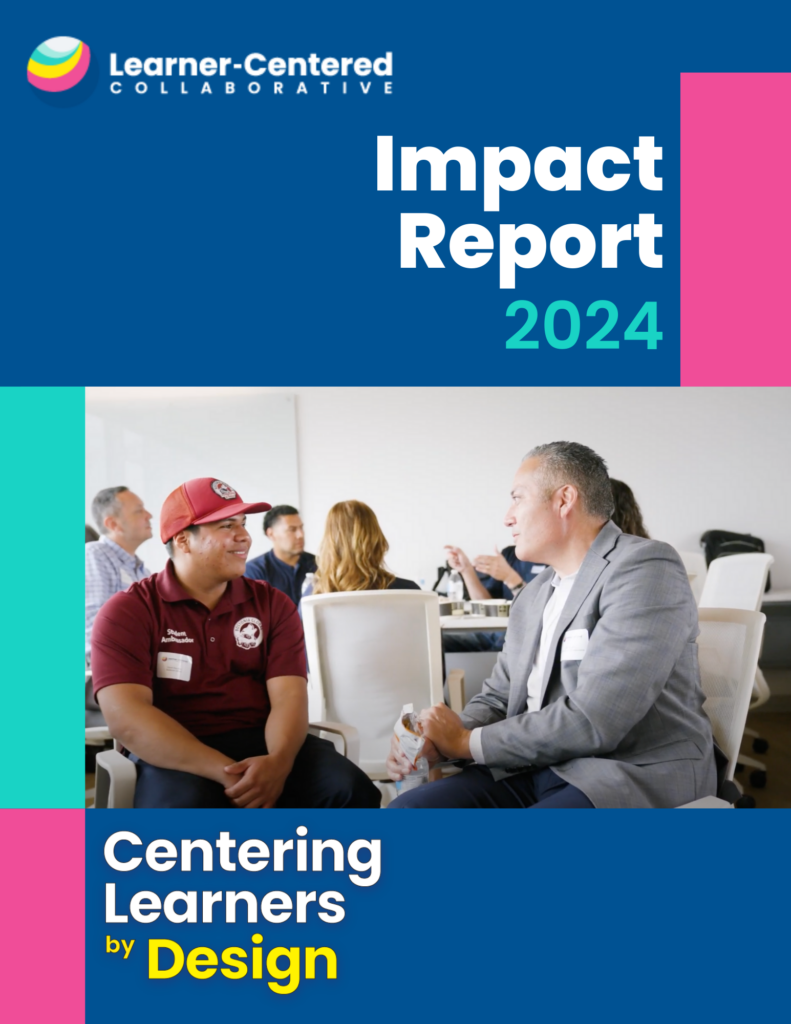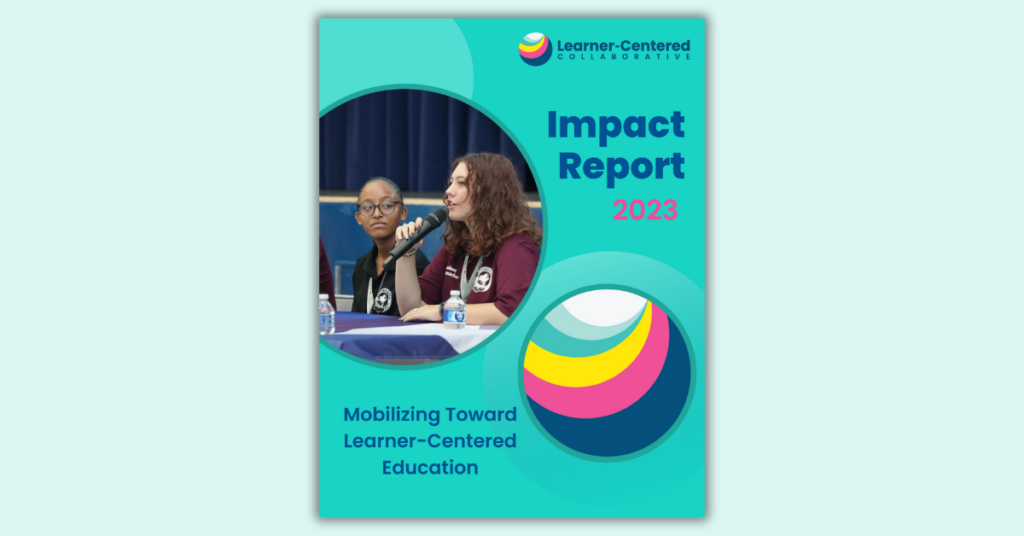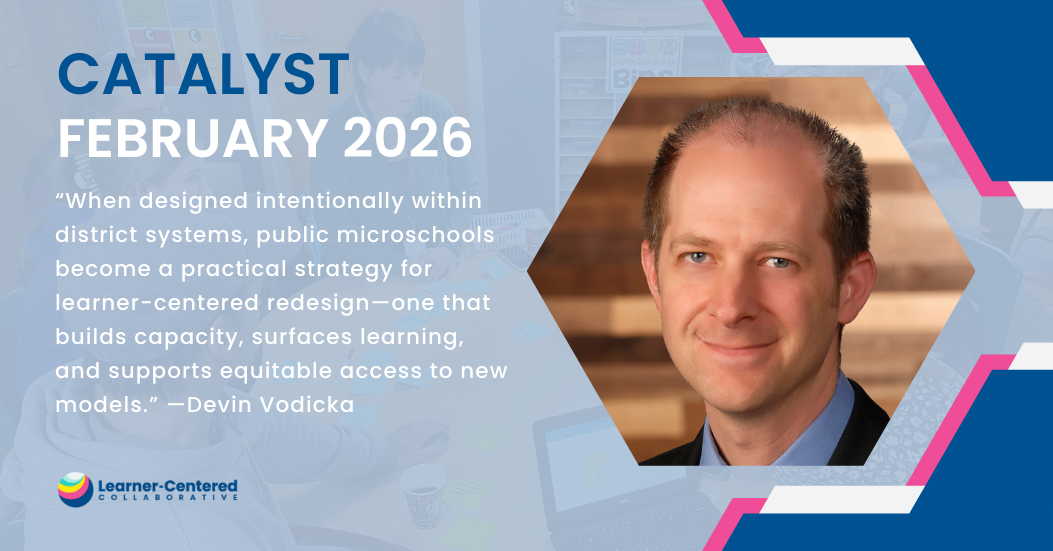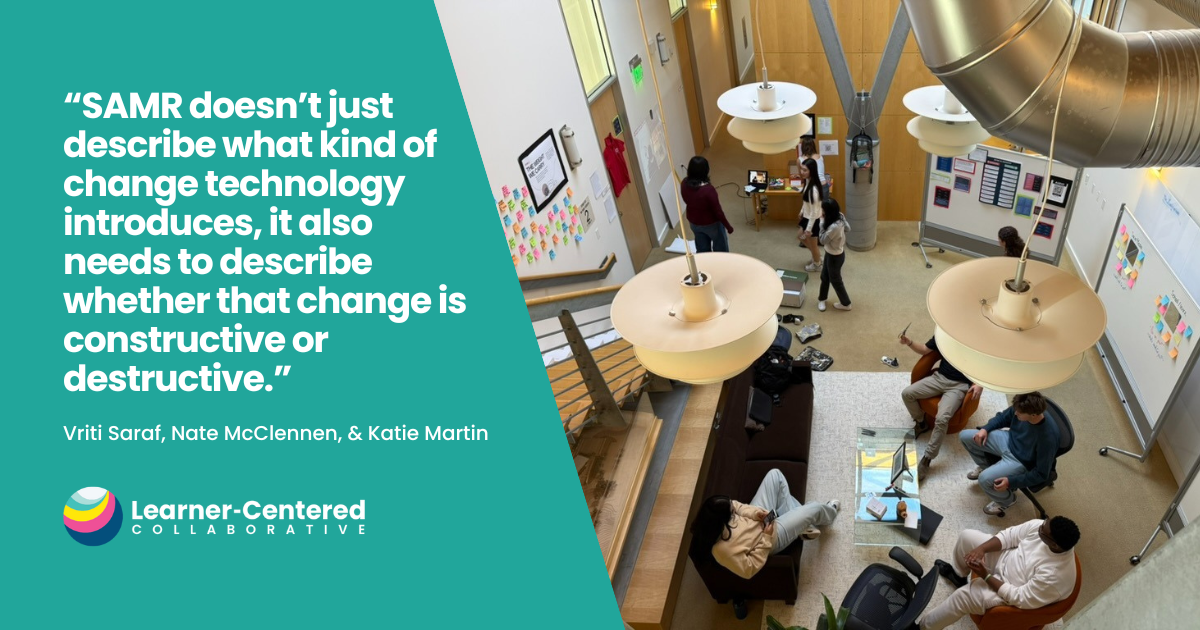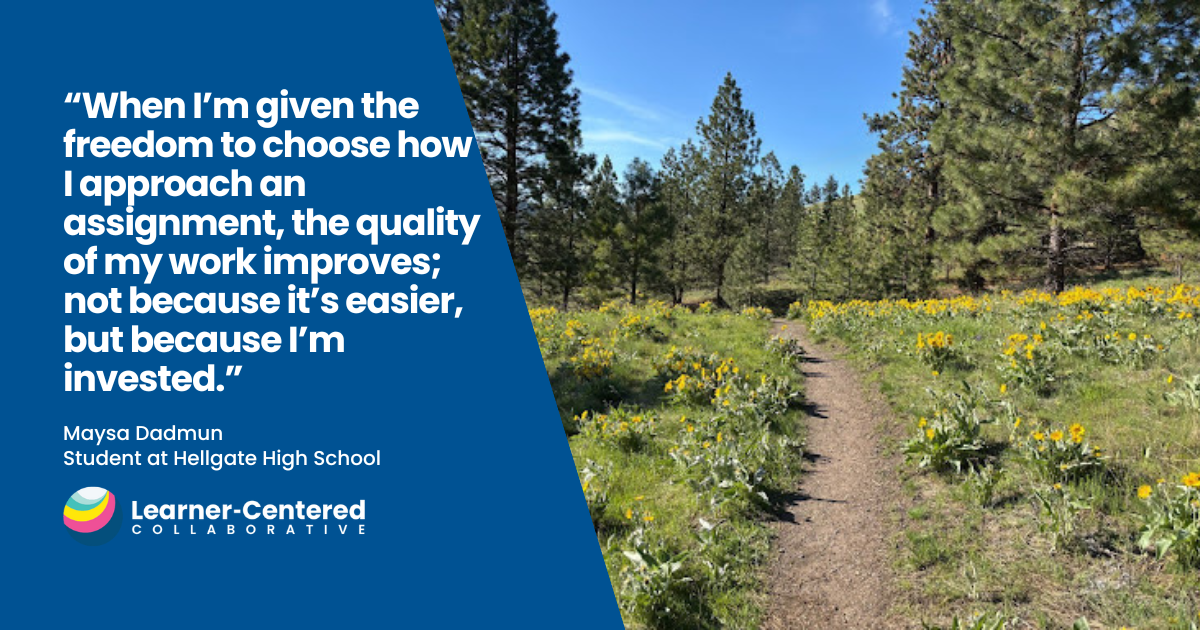2022 Impact Report
Celebrating a Year of Learner-Centered Collaboration
As a non-profit in pursuit of a vision for education ecosystems that empower all learners to know who they are, thrive in community, and actively engage in the world as their best selves we are pleased to present our 2021-22 Impact Report. This report featuring our progress in our first year as a not-for-profit organization includes:
- A letter from our executives
- Partner network overview
- Impact stories from partner schools and districts
- Impact to date in:
- Research and Development
- Convenings and Innovation Hubs
- Professional Learning
- Our Board of Directors and Advisory Council
